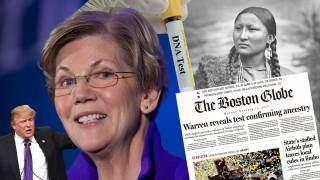The Post-Millennial Generation Should Worry Democrats
On Deck, “Generation Z,” the most conservative generation in 70 years. Born between 1995 -2010, they’re fiscally conservative, staunchly supportive of personal freedoms, and strong on national security including counter-terrorism and cyber-security, with a hint of isolationism. They don’t fit the mold for either political party in their current form, which is probably why data suggests they support the unconventional Donald Trump over the political status quo offered by either party.
“Digital Natives,” this generation will never experience life without the internet and interconnectivity of the landscape around them. They’ve never needed to ask another human being for directions – the world is open to them with limitless sources of information and no need to rely on one form of media. They are driven thinkers, attracted to fast-paced data, and willing to sift through the noise to find evidence backing their own ideologies and beliefs. While the September 11th attacks may not viscerally impact them like it does their elders, Gen Z has never known life without the threat posed by radical Islamic terrorism, and has had no experience of the world where the United States was not at war.
In comparison to preceding generations that had their early development shaped by naïve Disney movies and picture-postcard generalizations, Generation Z is growing up in the age of YouTube, twitter, and for better or worse, LiveLeak. This raw exposure to global events generates a more realistic, pragmatic, and a more calibrated, nuanced outlook than millennials before them. Gen Z values being challenged, contradiction, and debate, because their limitless options for information provides them with confidence.
Old mainstays of conventional politics are going to be pushed to the wayside as these “digital natives” gravitate to traditional positions from both parties. Socially both conservative and liberal, fiscally conservative, issue-based, and meritocratic, they trend towards individualism vs. collectivism while still motivated to effect social change.
This is perhaps the mechanism behind their strong support for Donald Trump. In polling data collected by the Hispanic Heritage Foundation including 50,000 high-school students aged 14-18 just prior to the election, first time voters presented a 46% – 31% divide in favor of the Republican candidate with primary concerns being education, gun rights, and health care. When expanded to reflect their generation as a whole Trump still maintained a 14-point advantage over Clinton at 34% — 20%.
Among Gen Z females we see the evaporation of a strong left/right gender divide with Trump coming out on top with by 3 points at 27% — 24%. Once again, education (50%), economy (33%), health care (24%), and gun rights (22%) most heavily weighted their opinion. Along state lines, Trump wins every state in contention except New York, South Carolina, and Florida.
Males were more typical of the general population with 42% in favor of Trump vs 17% for Clinton. Economy (43%), education (34%), gun rights (33%) and terrorism (20%) serve as chief concerns. The only state won by Clinton with this group was New Jersey.
Despite the heated language during the campaign surrounding immigration in the wake of the San Bernardino, Paris, and Nice attacks, a subsequent Presidential Pulse Study likewise conducted by the Hispanic Heritage Foundation found that individuals of Middle Eastern background supported Trump over Clinton by a 7 point margin, 29%-22%, with 32% expressing that they would choose not to vote in the election. While the sample size is small for this demographic (1094 participants of 83,298) it is reflective of Gen Z seeking information beyond traditional forms of media.
Critics of the above results repeatedly cite polling data from the “youth vote” going to Clinton 55%-37%. However, it should be noted this group includes ages 18-29, with a heavy percentage of voters falling to the latter half, outside the 18-21 block of Gen Z voters. Exit polling data specific to Gen Z is not yet available.
The trend for libertarianism is not limited to the United States. A study focused on Gen Z in Britain discovered significantly more conservative views than millennials on issues such as marijuana legalization, trans-gender rights, and same-sex marriage.
Andrew Mulholland, managing director of The Gild who conducted the British study suggests:
We need to move past the recent trend of ‘Millennial Fever,’ where the term ‘Millennial’ has become a lazy, if convenient, shorthand for some vague notion of achingly cool, social media-savvy 20-somethings who refuse stable careers and drink smoothies all day. And Gen Z may not be quite what you were expecting, as the data shows that they are more conservative than Millennials, Generation X and even Baby Boomers.
So what does this mean for the current political system?
Revision. Trump’s campaign offered an attractive platform for Gen Z via support of LGBQT issues, gun rights, reprioritizing the economy towards the American worker, education reform, health care reform, and initiatives to revitalize inner cities. It’s possible the President’s campaign will germinate more fluid political parties as both work to redesign their platform to include the incoming generation. With 84% of Gen Z identifying as fiscally moderate or conservative, 2020 is sure to be an interesting election.






















